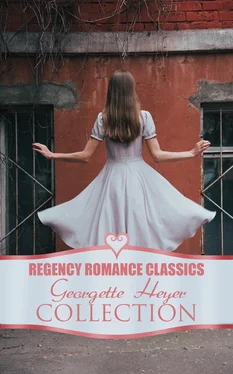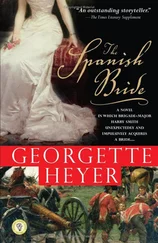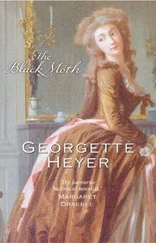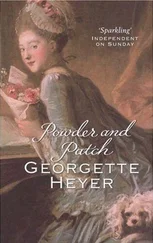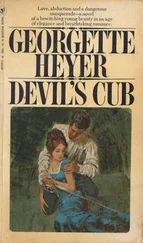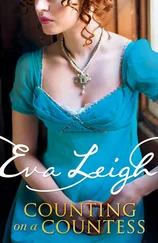Georgette Heyer
Regency Romance Classics - Georgette Heyer Collection
e-artnow, 2022
Contact: info@e-artnow.org
EAN 4066338123701
Powder and Patch Powder and Patch (Georgette Heyer) Table of Contents One The House of Jettan Two In Which Is Presented Mistress Cleone Charteris Three Mr. Bancroft Brings Trouble into Little Fittledean Four The Trouble Comes to a Head Five In Which Philip Finds That His Uncle Is More Sympathetic Than His Father Six The Beginning of the Transformation Seven Mr. Bancroft Comes to Paris and Is Annoyed Eight In Which Philip Delivers Himself of a Rondeau Nine Mr. Bancroft Is Enraged Ten In Which a Letter Is Read Eleven Philip Astonishes His Uncle Twelve Philip Plays a Dangerous Game Thirteen Sir Maurice Comes to Town Fourteen The Strange Behaviour of Mistress Cleone Fifteen Lady Malmerstoke on Husbands Sixteen Mistress Cleone Finds There Is No Safety in Numbers Seventeen Mistress Cleone at Her Wits' End Eighteen Philip Takes Charge of the Situation Nineteen Philip Justifies His Chin Twenty Mademoiselle de Chaucheron Rings Down the Curtain
The Black Moth
These Old Shades
Powder and Patch
(Georgette Heyer)
Table of Contents
One The House of Jettan
Two In Which Is Presented Mistress Cleone Charteris
Three Mr. Bancroft Brings Trouble into Little Fittledean
Four The Trouble Comes to a Head
Five In Which Philip Finds That His Uncle Is More Sympathetic Than His Father
Six The Beginning of the Transformation
Seven Mr. Bancroft Comes to Paris and Is Annoyed
Eight In Which Philip Delivers Himself of a Rondeau
Nine Mr. Bancroft Is Enraged
Ten In Which a Letter Is Read
Eleven Philip Astonishes His Uncle
Twelve Philip Plays a Dangerous Game
Thirteen Sir Maurice Comes to Town
Fourteen The Strange Behaviour of Mistress Cleone
Fifteen Lady Malmerstoke on Husbands
Sixteen Mistress Cleone Finds There Is No Safety in Numbers
Seventeen Mistress Cleone at Her Wits' End
Eighteen Philip Takes Charge of the Situation
Nineteen Philip Justifies His Chin
Twenty Mademoiselle de Chaucheron Rings Down the Curtain
Table of Contents
If you searched among the Downs in Sussex, somewhere between Midhurst and Brighthelmstone, inland a little, and nestling in modest seclusion between two waves of hills, you would find Little Fittledean, a village round which three gentlemen had built their homes. One chose the north side, half a mile away, and on the slope of the Downs. He was Mr. Winton, a dull man with no wife, but two children, James and Jennifer. The second built his house west of the village, not far from the London Road and Great Fittledean. He was one Sir Thomas Jettan. He chose his site carefully, beside a wood, and laid out gardens after the Dutch style. That was way back in the last century when Charles the Second was King, and what had then been a glaring white erection, stark-naked and blatant in its sylvan setting, was now, some seventy years later, a fair place, creeper-hung, and made kindly by the passing of the years. The Jettan who built it became inordinately proud of the house. Never a day passed but he would strut round the grounds, looking at the nude structure from a hundred different points of vantage. It was to be the country seat of the Jettans in their old age; they were to think of it almost as they would think of their children. It was never to be sold; it was to pass from father to son and from son to grandson through countless ages. Nor must it accrue to a female heir, be she never so direct, for old Tom determined that the name of Jettan should always be associated with the house.
Old Tom propounded these notions to the whole countryside. All his friends and his acquaintances were shown the white house and told the tale of its owner's past misdemeanours and his present virtue—a virtue due, he assured them, to the possession of so fair an estate. No more would he pursue the butterfly existence that all his ancestors had pursued before him. This house was his anchor and his interest; he would rear his two sons to reverence it, and it might even be that the tradition which held every Jettan to be a wild fellow at heart should be broken at last.
The neighbours laughed behind their hands at old Tom's childishness. They dubbed the hitherto unnamed house "Tom's Pride," in good-humoured raillery.
Tom Jettan was busy thinking out a suitable name for his home when the countryside's nickname came to his ears. He was not without humour in spite of his vanity, and when the sobriquet had sunk into his brain, he chuckled deep in his chest, and slapped his knee in appreciation. Not a month later the neighbours were horrified to find, cunningly inserted in the wrought-iron gates of the white house, a gilded scroll bearing the legend, "Jettan's Pride." No little apprehension was felt amongst them at having their secret joke thus discovered and utilised, and those who next waited on Tom did so with an air of ashamed nervousness. But Tom soon made it clear that, far from being offended, he was grateful to them for finding an appropriate name for his home.
His hopeful prophecy concerning the breaking of tradition was not realised in either of his sons. The elder, Maurice, sowed all the wild oats of which he was capable before taking up his abode at the Pride; the other, Thomas, never ceased sowing wild oats, and showed no love for the house whatsoever.
When old Tom died he left a will which gave Maurice to understand that if, by the time he was fifty years of age, he still refused to settle down at the Pride, it was to pass to his brother and his brother's heirs.
Thomas counselled Maurice to marry and produce some children.
"For damme if I do, my boy! The old man must have lost his faculties to expect a Jettan to live in this hole! I tell ye flat, Maurice, I'll not have the place. 'Tis you who are the elder, and you must assume the—the responsibilities!" At that he fell a-chuckling, for he was an irrepressible scamp.
"Certainly I shall live here," answered Maurice. "Three months here, and nine months—not here. What's to stop me?"
"Does the will allow it?" asked Tom doubtfully.
"It does not forbid it. And I shall get me a wife."
At that Tom burst out laughing, but checked himself hurriedly as he met his brother's reproving eye.
"God save us, and the old gentleman but three days dead! Not that I meant any disrespect, y'know. Faith, the old man 'ud be the first to laugh with me, stap me if he wouldn't!" He stifled another laugh, and shrugged his shoulders. "Or he would before he went crazy-pious over this devilish great barn of a house. You'll never have the money to keep it, Maurry," he added cheerfully, "let alone a wife."
Maurice twirled his eyeglass, frowning.
"My father has left even more than I expected," he said.
"Oh ay! But it'll be gone after a week's play! God ha' mercy, Maurry, do ye hope to husband it?"
"Nay, I hope to husband a wife. The rest I'll leave to her."
Tom came heavily to his feet. He stared at his brother, round-eyed.
"Blister me, but I believe the place is turning you like the old gentleman! Now, Maurry, Maurry, stiffen your back, man!"
Maurice smiled.
"It'll take more than the Pride to reform me, Tom. I'm thinking that the place is too good to sell or throw away."
"If I could lay my hand on two thousand guineas," said Tom, "anyone could have the Pride for me!"
Maurice looked up quickly.
"Why, Tom, all I've got's yours, you know very well! Take what you want—two thousand or twenty."
Читать дальше
